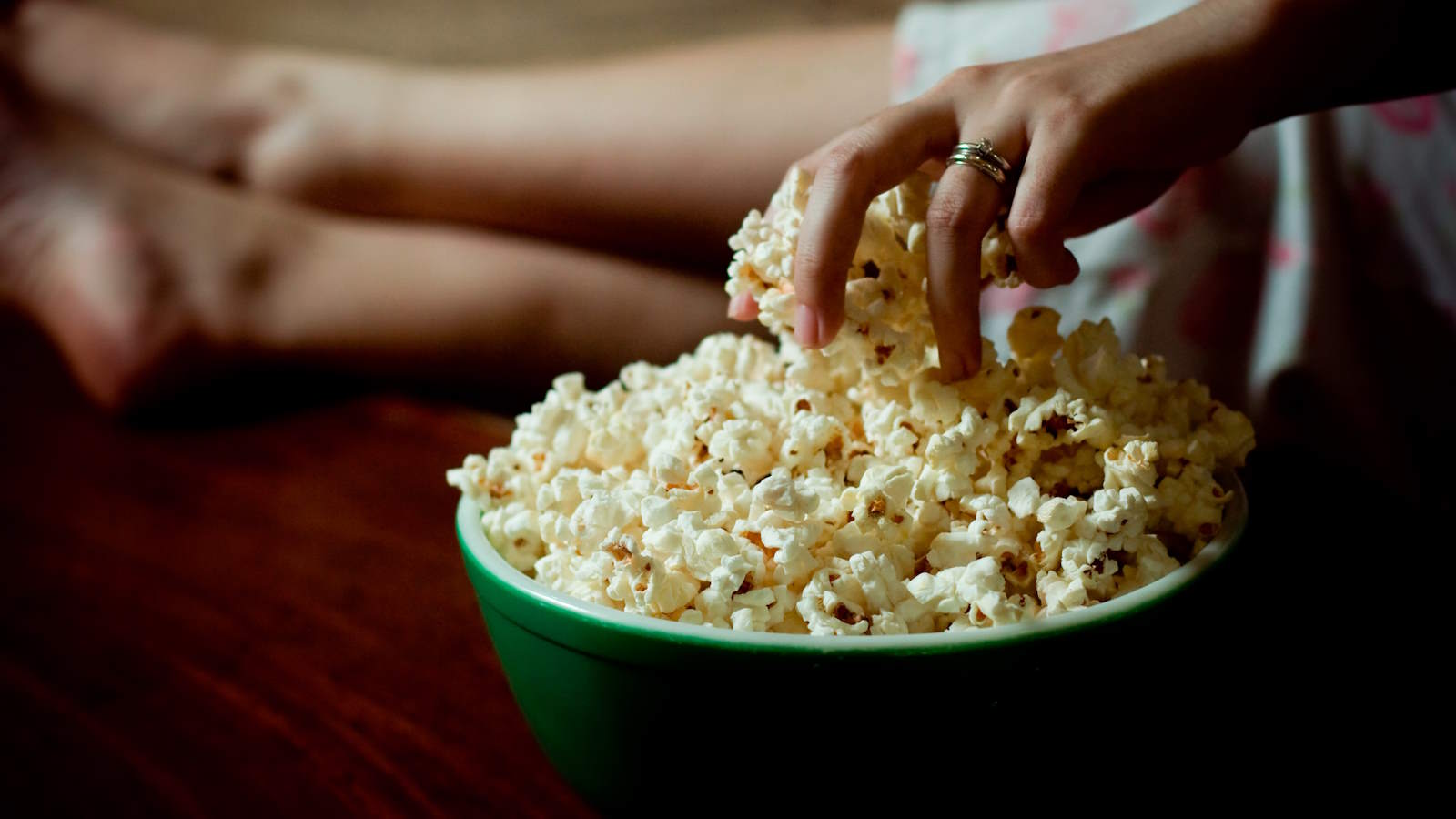
Popcorn is the classic accompaniment to a good movie or TV series. Whether you enjoy it salty or sweet, popcorn is a simple crop to grow and popping your homegrown crop can be a very satisfying experience.
It is a specific type of corn grown for popcorn, but within that type, some varieties come in different colors, sizes, and flavors. There are similarities between growing corn and popcorn varieties, but they must be grown separately to avoid complications through cross-pollination.
If you want to grow popcorn for a fun experiment and a healthy snack, then we are here to help. I have grown corn, including specific popcorn varieties, for many years and get tips from an experienced vegetable grower to take you through the whole process of growing popcorn.
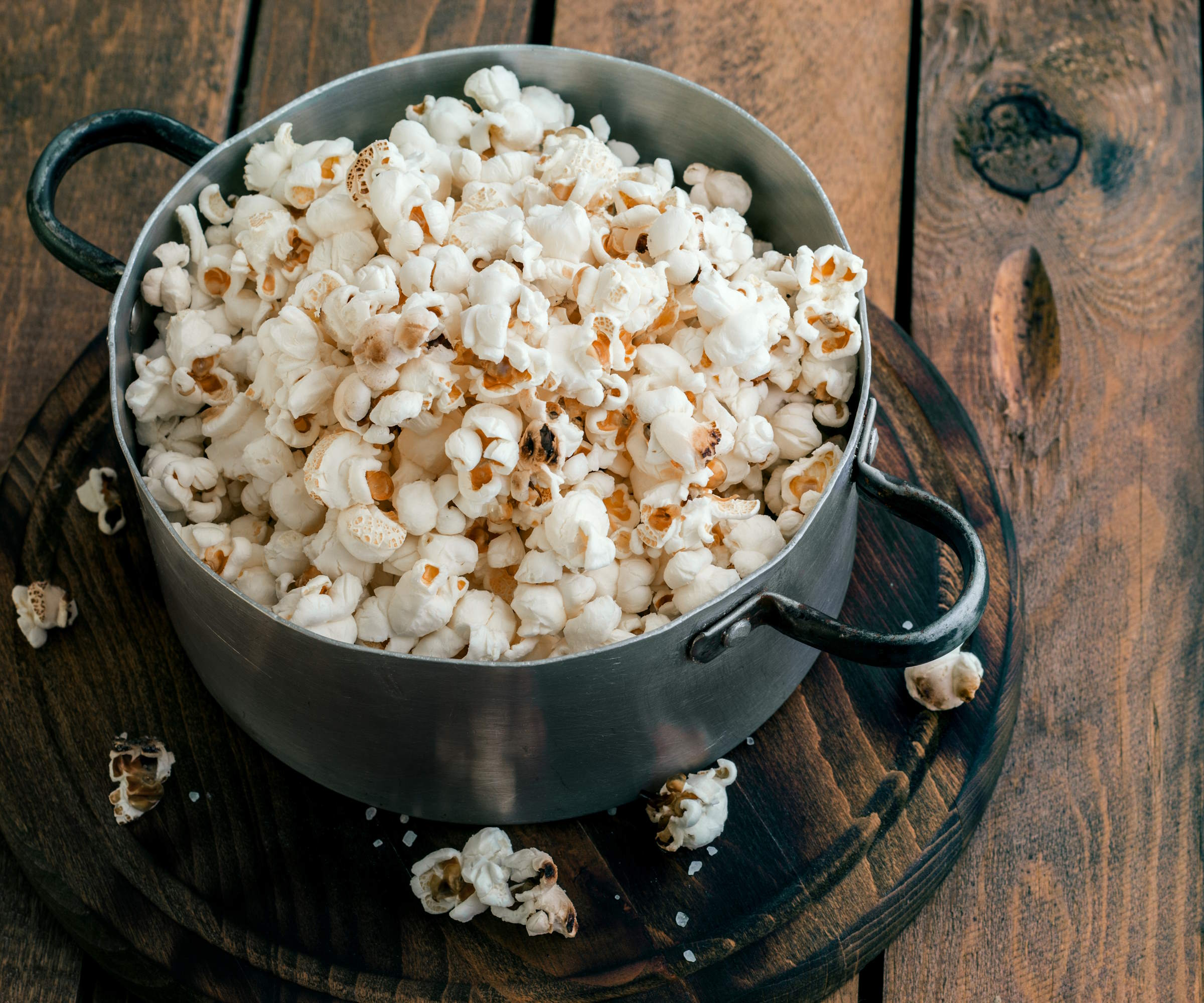
How to grow corn for popping
Success in growing and planting vegetables comes down to meticulous planning and care, including when and where to plant and how to care for the crop successfully. To guide you through, let's take a closer look at all you need to know to get a great crop of popcorn.
The different types of corn
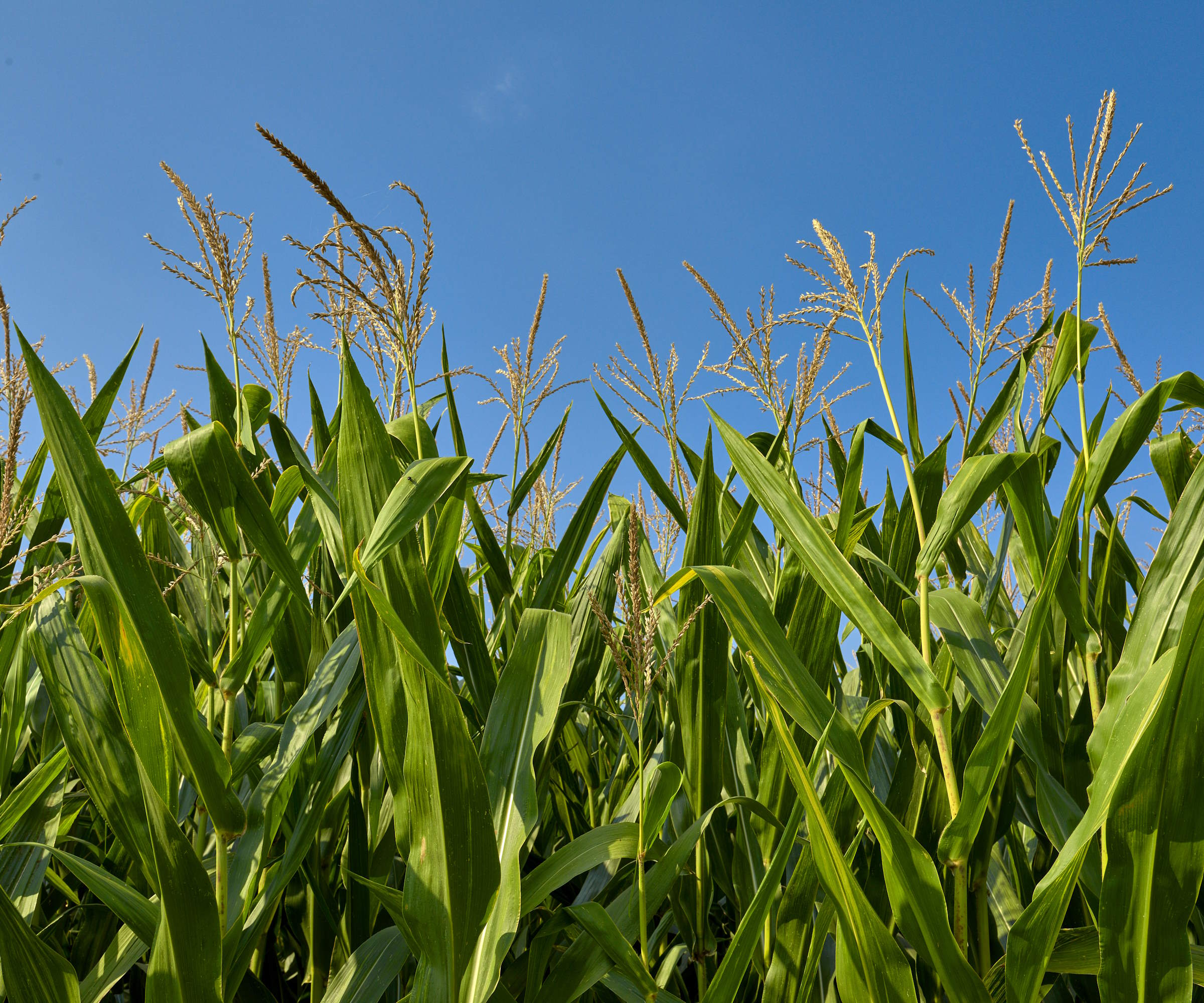
Corn is a popular crop grown in vegetable gardens, but popcorn is a particular type of corn whose kernels will burst when heated. Popcorn (Zea mays var. everta) has certain key characteristics that differentiate it from other types of corn often cultivated in a kitchen garden and cooked on the cob.
‘The key characteristics of popcorn are a hard outer shell, low moisture content, and a neutral, non-sweet flavor,’ explains Ashleigh Smith, managing editor at True Leaf Market. ‘When heated, the little bit of moisture in the kernel creates enough pressure within the hard shell to turn the starchy content inside out. Other corn types are unable to do this because they do not have an outer shell hard enough to trap the moisture.’
Homegrown popcorn is a simple crop to grow. However, if you want to grow popcorn, which can be an enjoyable growing experiment for families, examine the seed packets or product descriptions when buying seeds to ensure the variety is popcorn-type. It is best to get fertile seeds from reputable retailers rather than attempting to use store-bought corn.
How to plant popcorn
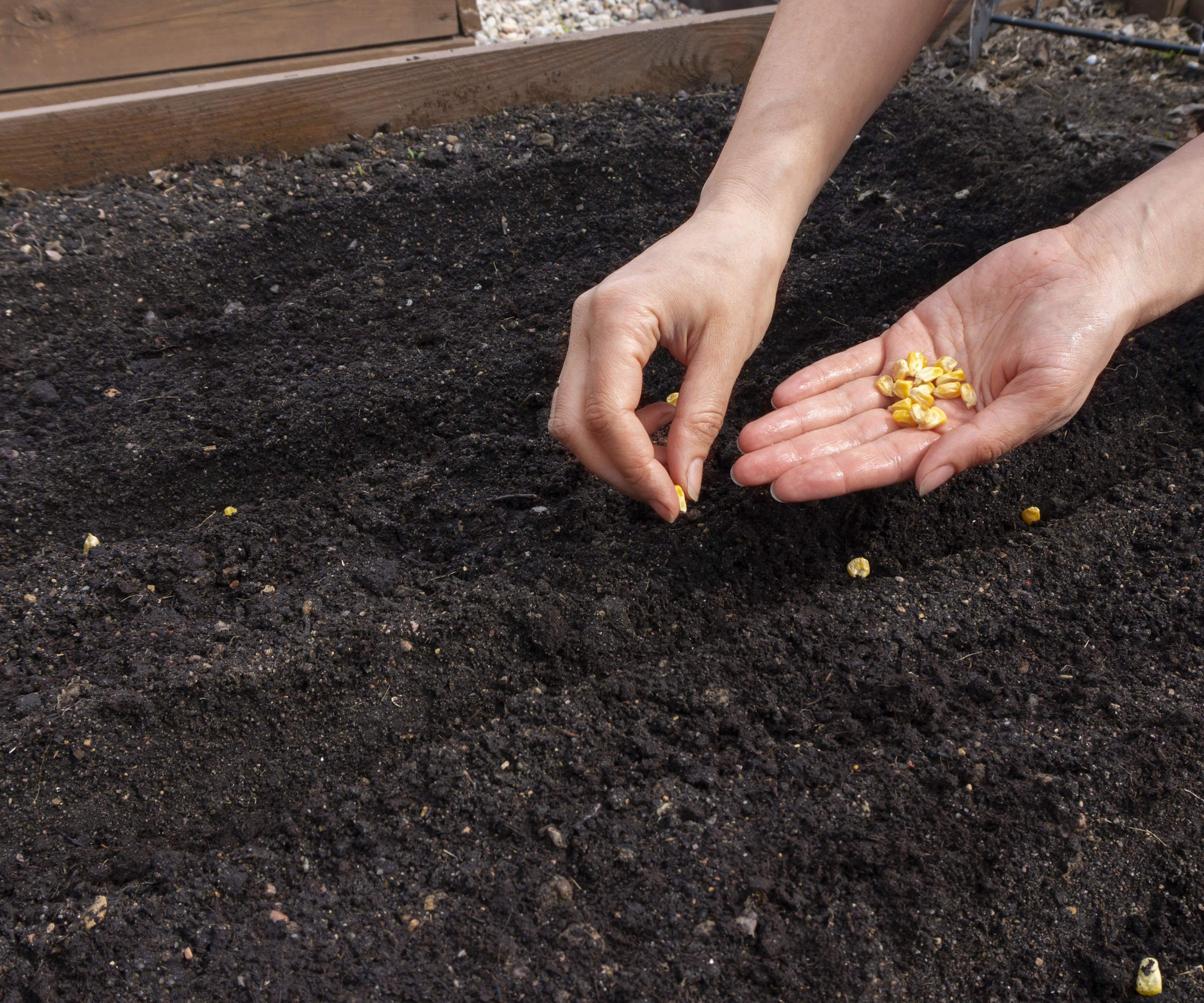
Popcorn has a long growing season, taking up to 120 days from sowing to reaching full maturity, so when and where you plant corn will depend on your location.
The crop can be sown outdoors directly into the ground in warmer climates or started indoors to get ahead in colder areas. When calculating a seed sowing schedule, check whether the season is long enough to start seeds outdoors or whether it is better to sow indoors earlier and plant out later.
The seeds will germinate best outdoors once the soil has reached 55°F. Sow seeds outdoors once the risk of frost has passed and the ground temperature has warmed to sufficient levels - check with a soil thermometer, available at Amazon. You can use cloches, horticultural fleece, or plastic to warm the soil and be able to sow seeds outdoors earlier.
Sow seeds one inch deep in the spring, spaced 8-10 inches apart. All corn types should be planted in blocks or multiple rows to achieve good wind propagation and the rows should be spaced 24 inches apart.
If you live in a colder climate with later frosts, such as in US hardiness zones 3-5, you are better sowing seeds indoors in a greenhouse or on a sunny windowsill.
Plant the vegetables in April into individual pots, or large modules, filled with seed compost. Keep them moist and in a warm location to germinate and transplant seedlings outside, after a period of hardening off, from the end of May after the frosts have ended.
Shop popcorn seeds
The Glass Gem seeds produce ears of colorful, rainbow kernels. Each ear is entirely unique.
Robust Yellow Hulles Hybrid is exceptionally good for popcorn with a thin hull for easy popping.
Neon Pink Popcorn corn stalks are filled with bright and dark pink kernels, ears are about 3-4½ inches long.
Where to grow popcorn
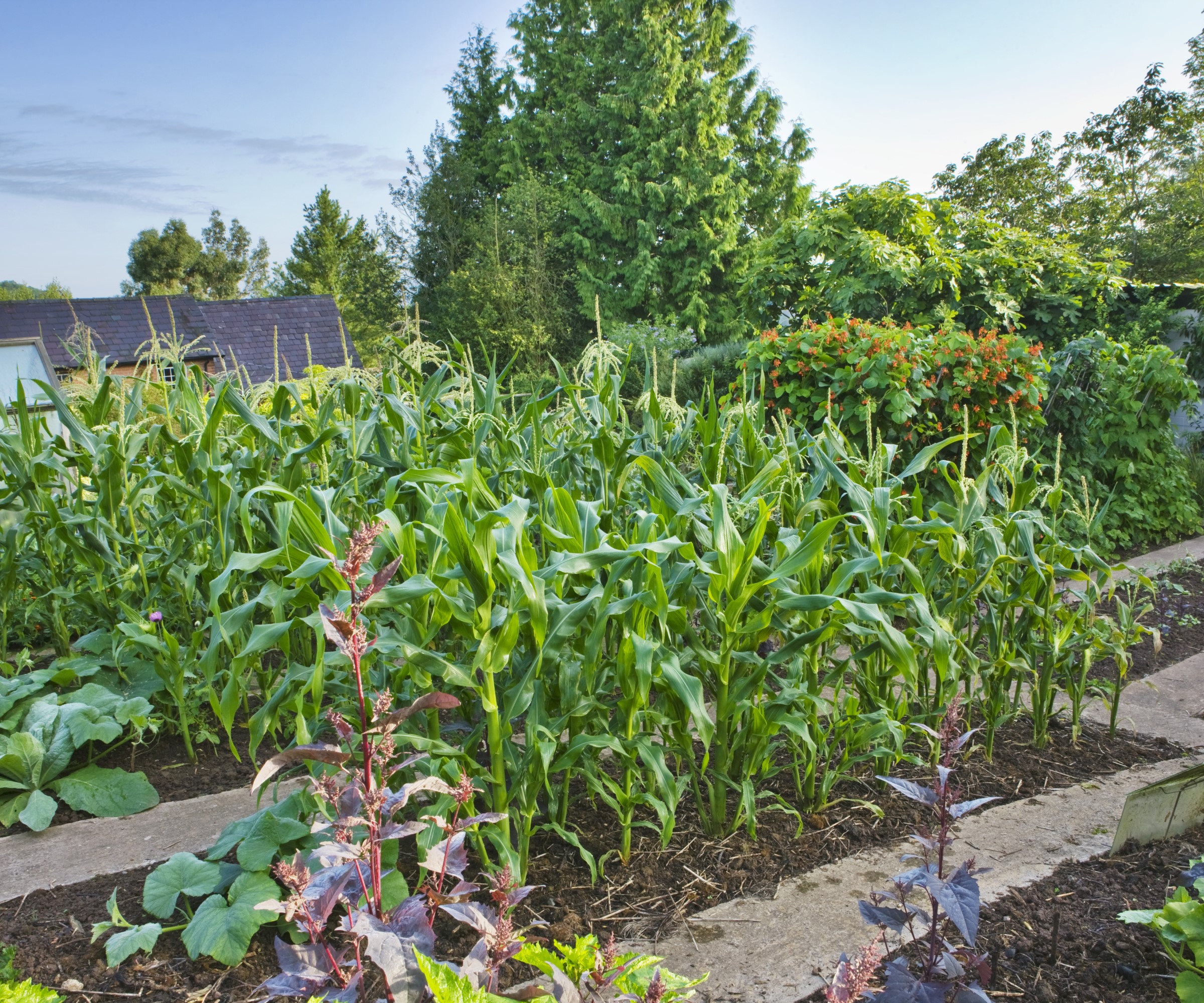
Popcorn grows best in full sun, they are crops that want light and warmth so an ideal spot will have 6-8 hours of sunlight each day. The soil type wants to be fertile and well-draining with a pH of 6-7. Adding organic matter to the site in fall or spring, such as compost or well-rotted manure, will boost the soil’s nutrient levels and moisture-holding capacity.
Do not plant popcorn near other types of corn, this would be a vegetable gardening mistake which can cause cross-pollination. Ashleigh Smith warns that cross-pollination can cause ‘undesirable traits’ including softer kernels or higher moisture levels.
‘These changes will prevent the kernels from popping correctly,’ advises Ashleigh.
‘When growing more than one type of corn, be sure to separate them by at least 250 feet, use a physical barrier, or stagger their maturity times so the pollination periods do not overlap.’
If you are growing popcorn in pots as part of a vegetable container garden, use a large container at least 14 inches wide and deep with holes in the bottom for drainage. Fill it with quality potting soil and place the container in a sunny spot in the yard.
How to grow popcorn corn - tips for success
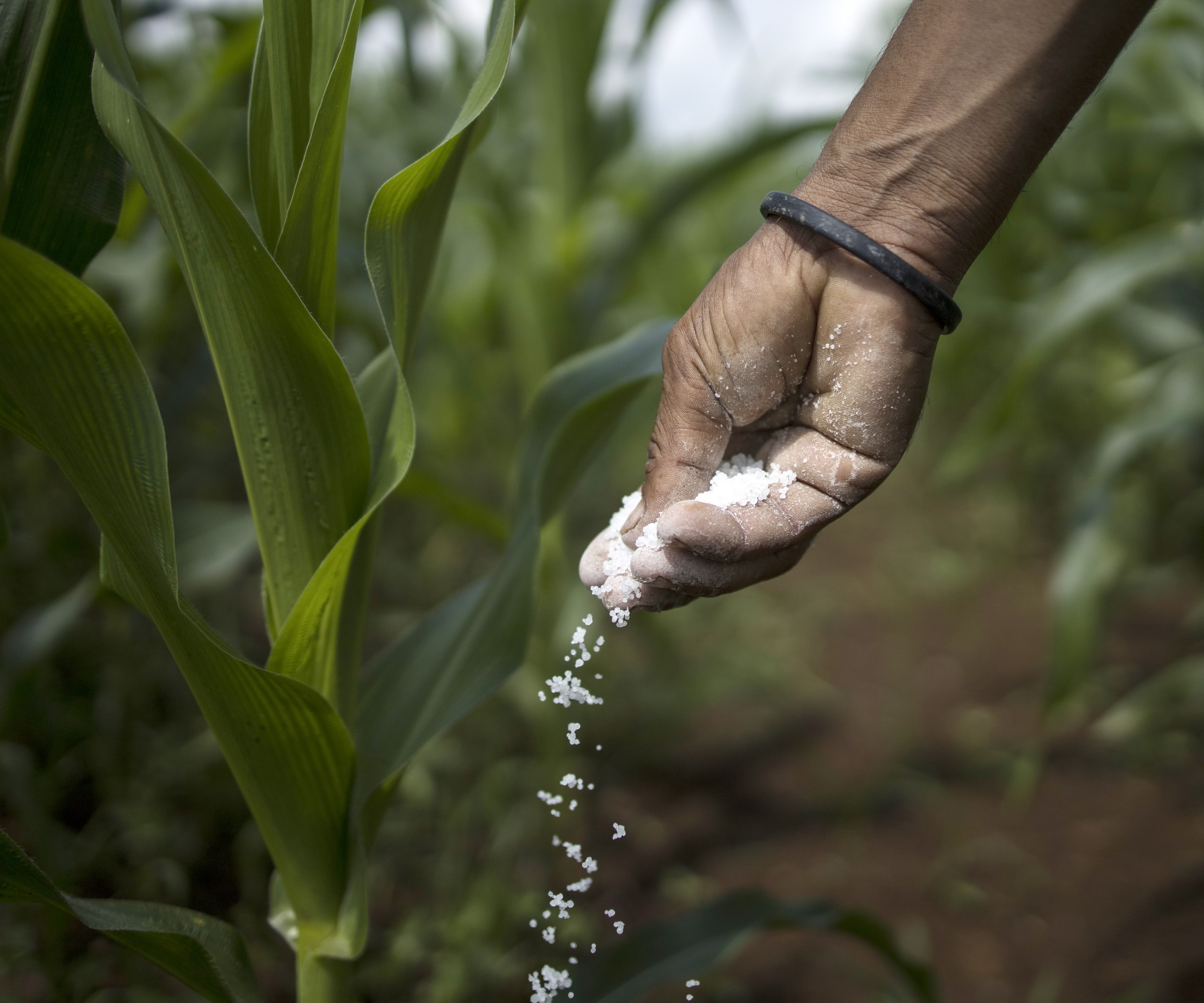
Popcorn will grow best if it receives around an inch of water a week, whether from natural rainfall or the gardener keeping a close eye on watering plants regularly. Make sure to keep the soil moist in summer, especially if the crop is growing in a container, and use a soil moisture meter to check the levels down in the soil.
All types of corn are heavy feeders that need lots of nutrients and water to grow healthy and produce a great crop. Ashleigh Smith recommends fertilizing corn ‘before planting, when the stalks are about knee-high, and again when they are about waist-high’ to provide the nutrients required for stalk and leaf development.
The ideal feeding regime would include a balanced all-purpose fertilizer at the time of planting, a high-nitrogen feed when the plants reach 10-12 inches tall, and then a fertilizer high in phosphorus and potassium when the plants start producing cobs.
Control weeds around the popcorn to prevent these unwanted plants from stealing water and nutrients away from crops. Regularly running around plants with a garden hoe is the quickest and easiest way to prevent excess weed issues.
Shop popcorn fertilizers
A water soluble fertilizer with an NPK of 20-20-20 to use when planting popcorn in the vegetable garden.
A fertilizer high in nitrogen with an NPK of 12-0-0 to feed popcorn plants once they are 10-12 inches tall.
A premium plant food high in phosphorus and potassium with an NPK of 3-4-6 to help develop and ripen popcorn cobs.
How to harvest popcorn
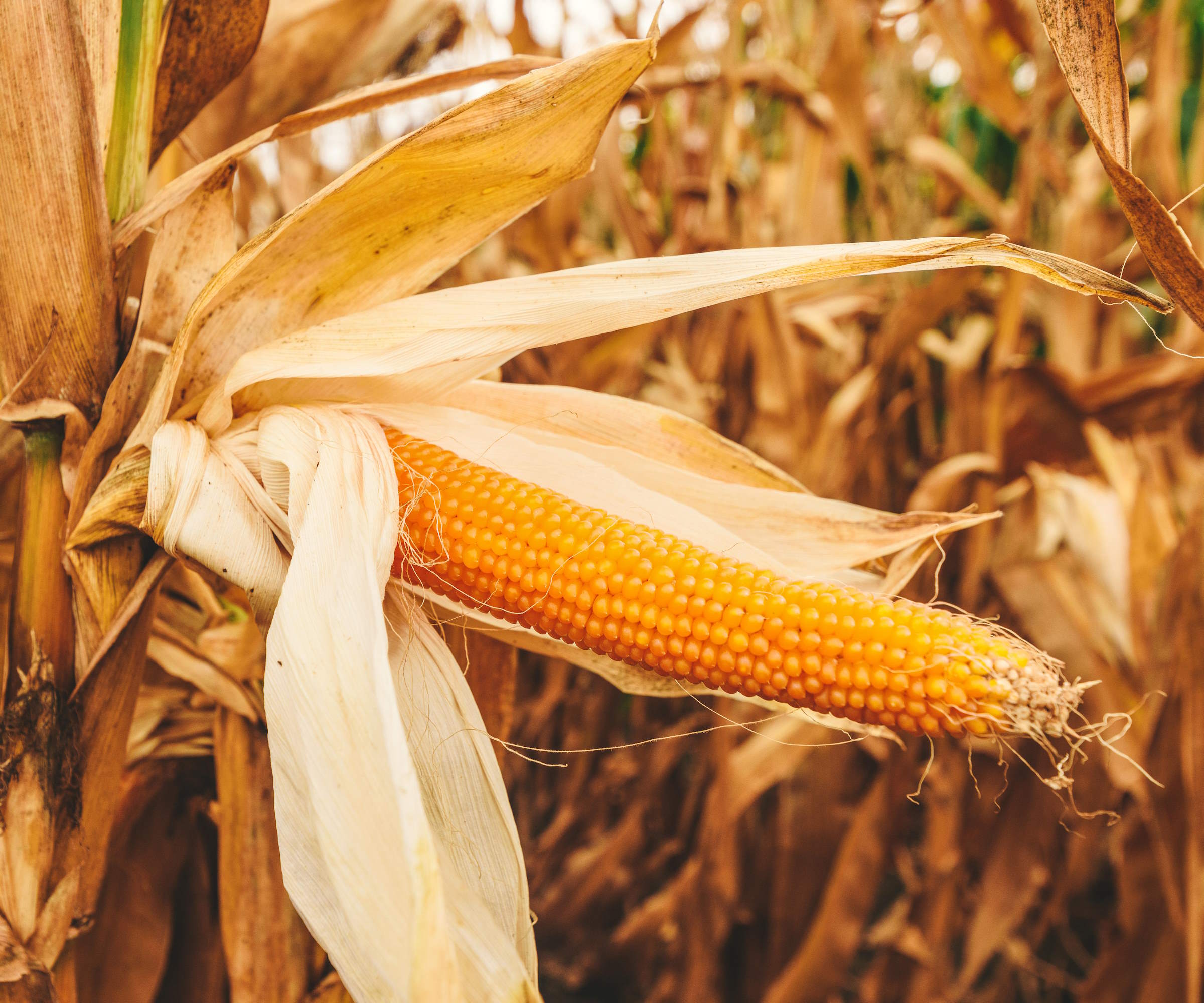
Popcorn can take 90-120 days to be ready to harvest, it is advised to always refer to the seed packet for the estimated time to reach maturity for the particular variety.
The corn wants to dry on the plant and the tell-tale sign it is ready to harvest is when the husks are dry and the tassels dark brown. The kernels should also be hard and this can be tested by attempting to press a thumbnail into it - if you can, then it is not dry enough. It is best to let the popcorn dry on the stalk, but the crop does want to be harvested before the first frost.
To harvest the corn, cut the ears from the stalks and peel the husks down. The popcorn ears want to be hung or laid out indoors to dry further for a couple of weeks, before being shelled and stored in an air-tight container in a cool, dry place.
FAQs
How long does it take to grow popcorn?
Popcorn can take 90-120 days from sowing the seeds to harvesting the ears. The exact time will depend on certain factors, including the variety, where and when you planted the seeds, and the growing conditions throughout the season.
How tall does popcorn grow?
It will depend on the variety of popcorn you grow and the amount of water and fertilizer you give plants, as well as the weather. However, popcorn plants are tall crops that can reach between six and nine feet in height in a growing season.
As well as popcorn, there are other healthy snacks you can grow in a vegetable garden. That includes kale chips, a crunch snack that is tasty and high in vitamins. Growing kale is very simple and the leaves are brushed with a little oil and baked for a satisfying snack.







